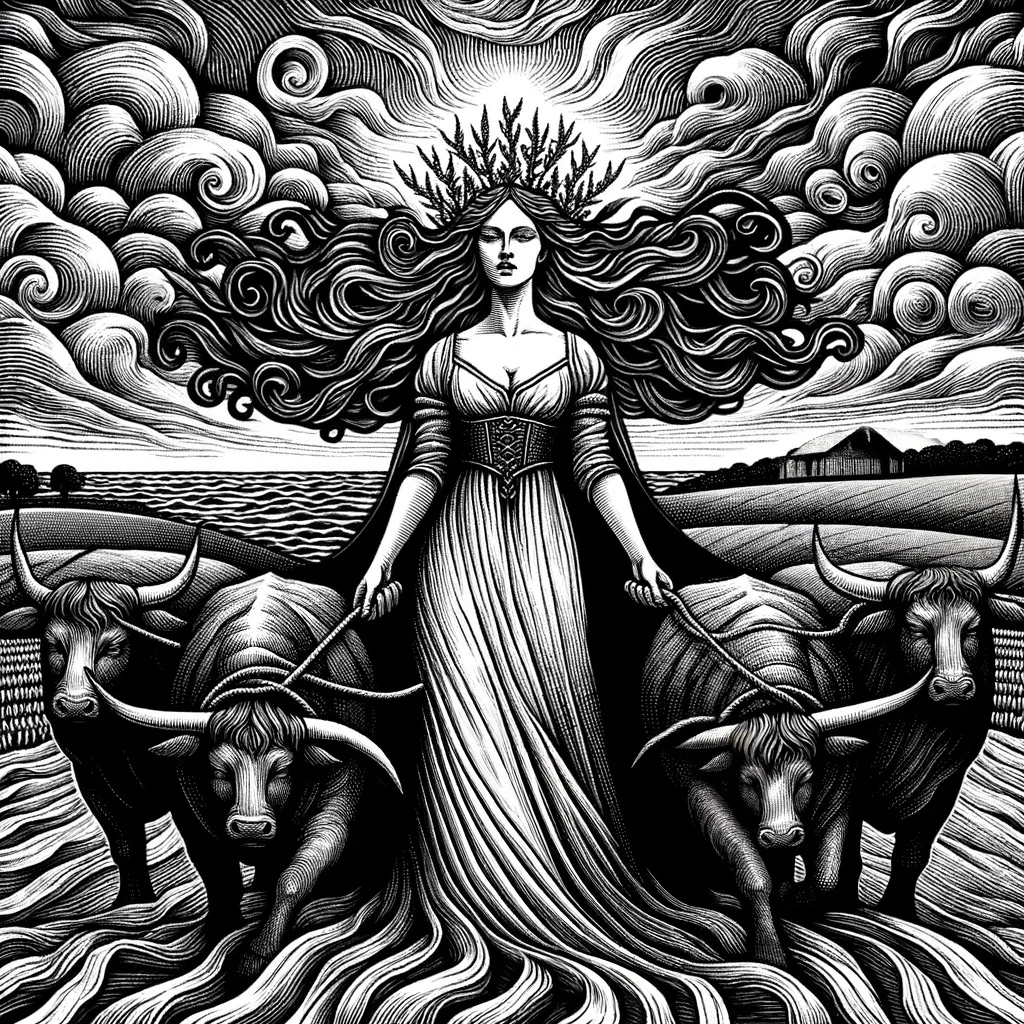
| Alternate Names: | Gefion |
| Iconography: | Plow, Oxen, Waves |
| Domains: | Plowing, Love, The Ocean, Prophesy |
Geofon is mentioned in Beowulf five times, in several contexts, most often in connection with the sea. Frank Battaglia in 1991 in his paper, “The German Earth Goddess in Beowulf?”1Battaglia, F. (1991). The German Earth Goddess in Beowulf? Mankind Quarterly, 31(4), 415–446. https://doi.org/10.46469/mq.1991.31.4.5 posits translations for line 362 (Geofenes begang) as “Gefion’s realm,” line 515 (Geofon ȳðum wēol) as “Gefion welled up in waves,” line 1394 (nē on Gyfenes grund, gā þær hē wille) as “not (even) in the ground of Gefion, go where he will,” and line 1690 (Gifen gēotende gīgante cyn;) as “Gefion gushing, the race of giants”.2Heaney, S. (1999). Beowulf: A new verse translation. https://ci.nii.ac.jp/ncid/BA85723735
At least one of these occurrences (line 49) strongly alludes to the sorrow of the goddess known as Gefjun or Gefion in Norse mythology, over the death of Scyld Scefing, to whom Snorri Sturlason claims she is wed in a euhemerized account in Heimskringla.3Sturluson, S. (1964). Heimskringla. https://doi.org/10.7560/732629 It is accepted among some scholars, and by this author, that these passages can only be reasonably viewed as referring to that goddess, who ploughed a tract of land in Sweden so deeply it was pulled out into the sea, and became the island of Zealand. Her name has been used to gloss those of several Greco-Roman goddesses in Norse literature, including Aphrodite. She also bears in some accounts, a startling similarity to the Norse goddess, Freyja. Snorri lists the byname ‘Gefn’ as one belonging to Freyja, and both those goddesses have been accused of exchanging sexual favors in return for a necklace. Both have magical powers of foresight, and both are associated with fertility. The extent to which this correspondence between them is historically accurate, versus a conflation on the part of Viking Era poets, is hard to say.
We revere her today as a goddess connected with working the Earth, and with the just rewards diligence should bring. She is a protector of unmarried women. She is also seen as a goddess with dominion over child-birth, the gifts bestowed upon babies at birth, as well as sexuality, fate, and foresight. Finally, she is a goddess of the Sea, embodying its power.
